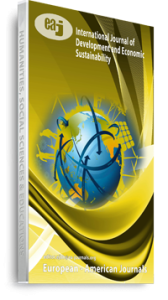The research has been on the Real Exchange Rate (RER) and Foreign Direct Investment (FDI) inflow. This has become necessary given the declining competitiveness of the Nigeria currency and economy. The study covered the period between 1981 and 2017. The Cointegration and the Error correction Model of the Ordinary least squares technique were used to analyze the data. The result of the Augmented Dickey Fuller (ADF) unit root test indicates that the variables became stationary after the first difference was taken. The Johansen Cointegration test indicates a long run equilibrium relationship among the variables. Also the result of the parsimonious Error Correction Model (ECM) indicates that the volatility of the Real Exchange Rate (RER) has a negative and significant impact on the inflow of Foreign Direct Investment (FDI) into Nigeria. The openness of the economy has a positive and significant relationship with the Foreign Direct Investment (FDI). The interest rates has a negative and significant impact on the Foreign Direct Investment (FDI) inflow. It was therefore recommended amongst others that the government should not only concentrate on the manipulation of the exchange rate but should make concerted efforts to diversify the productive base of the economy so as to increase the competiveness of the Nigerian economy and hence its currency.
Keywords: Cointegration, Foreign Direct Investment, Real Exchange Rate, Real Exchange Rate Volatility

